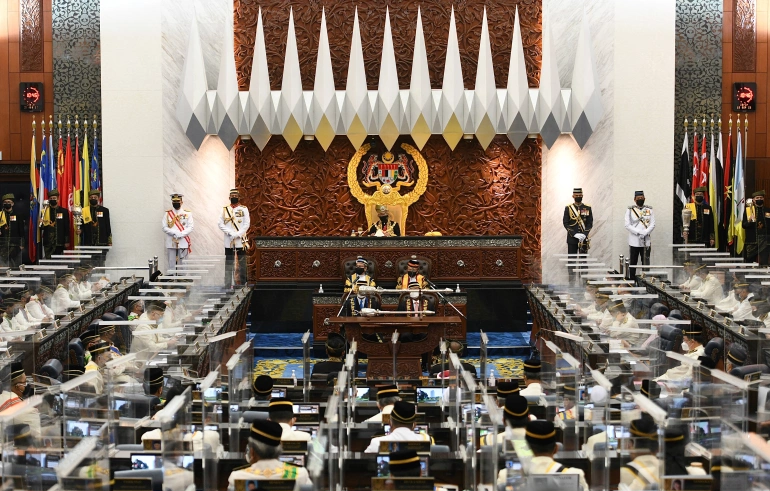
In August 2022, The Malaysian Court of Appeals overturned a landmark 2021 High Court Ruling that allowed Malaysian Women married to Foreigners to pass down their citizenship to their children born aboard. The Court of Appeals, by overturning the decision in this case, have denied women the right automatically bestowed on Malaysian men. This discriminatory provision in the Federal Constitution has been critiqued for many years. However, the pandemic preventing many women from travelling back home for their pregnancies and the struggle they face to confer citizenship to their children bought this injustice to international attention. What is more disturbing is the rationale behind the court’s reasoning for the reversal, that women are less likely to leave relationships so the child would rarely be rendered stateless. Women now have to apply for citizenship through an arbitrary and tedious registration process, will less than a 2.5% probability of it being approved. These differences in conferring citizenship to their children on Malaysian men and women are discriminatory in nature and in violation of Malaysia’s obligation to international law. Malaysia is one among the many nations that have set in place discriminatory citizenships law for men and women.
Countries around the world often cite excuses for national security to prevent the automatic transfer of citizenship to children born abroad to foreign partners. However, when the excuse becomes arbitrary when it discriminates against one gender over the other. There is no evidence that points toward the effectiveness of these counter-terrorism tactics. While issues of nationality and citizenship affect men in some countries, there is an overwhelming statistic on how these laws unfairly target women and have an enormous impact on their lives. Many nations have made significant progress when it comes to removing barriers for women and their battle with citizenship. Despite this, sex discriminatory nationality laws still exist in about 49 countries. This percentage also represents a whopping 25 per cent of UN member states. Many countries that are party to various human rights instruments, including the Convention on the Elimination of All Forms of Discrimination against Women (CEDAW), have reservations to Articles that grant “women with men with respect to the nationality of their children”. Hurdles to citizenship can have dire consequences in actualizing many other rights such as the right to health, right to education, employment etc. This also creates barriers for women to leave abusive marriages, especially when their statehood or their children are dependent on the abusive spouse. The right to citizenship and nationality also finds its roots in the Universal Declaration of Human Rights and a plethora of other international human rights instruments. This also interferes with the right to non-interference with private and family life.
While many countries, including Malaysia, have been promoting gender equality through policies and laws, nationality always seems to be an exception to this progress. When reasons for national security are cited, how can the international community respond while respecting state autonomy and sovereignty? Or is it best to close your eye to the injustice in fear of undermining your own sovereignty? While all eyes usually point to the Global West to right the wrongs, the United States is one among the 29 UN Members to have discriminatory citizenship laws. Whilst there have been efforts to remedy this wrong, the onus has been placed on Congress to determine the law, and this seems to be the last of Congress’ agenda right now. The right approach would address the root cause of such discriminatory laws. Concerns about national security are rooted in misogyny, patriarchal stereotypes and notions that women are easily influenced and manipulated. Efforts must be concentrated on disassociating national security from the concept of citizenship. However, this poses an ideological challenge as well due to the interlink between refugees, nationality and national security. By effect, hurdles on nationality and succession contribute to statelessness.
While the Malaysian case has thrown light on the practice at hand, the issue is a pressing issue in many parts of the world. When conversations about the nationalities of children of LGBTQIA+ citizens are debated, the fact that the international community has not found a solution to this age-old discriminatory practice is worrying. The UN has time and again stressed on the injustice and the effect these laws have on both women and children. Unlike when addressing other human rights violations, economic sanctions or use of force will not yield concrete results in the case for equality in nationality laws and citizenship confarreation. This matter of policy can come to fruition with active efforts to combat gender stereotypes and remove gender-biased national security concerns. In fact, by denying citizenship/nationality to spouses/children in the name of security, the State is forfeiting their right to track or take action against ‘potential threats’. Citizenship, therefore, will only increase accountability.
References
https://www.state.gov/other-policy-issues/statelessness/
https://link.springer.com/article/10.1007/s40802-018-0123-8
By The European Institute for International Law and International Relations.













